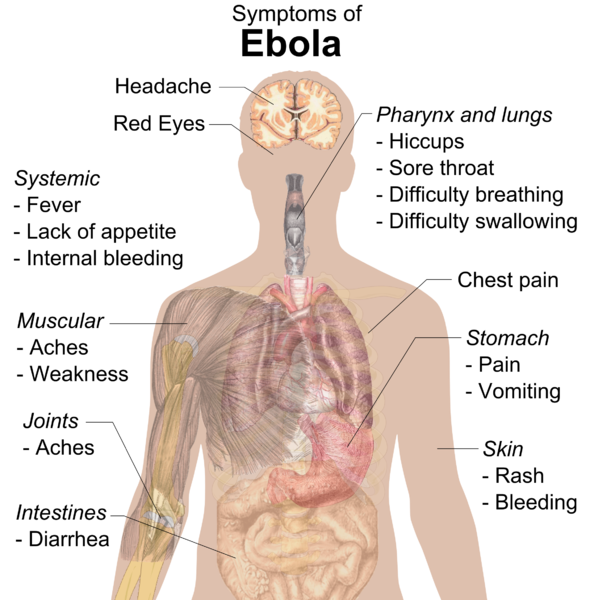Ebola is a very nasty disease. At the beginning, you have fever, then vomiting and diarrhea, a rash, and then it starts to deteriorate your organs. If you’re lucky, you’ll live. At least 70% of Africans who contract Ebola aren’t that lucky. All this occurs inside of 2 weeks, most likely less.
And when have you last heard of a government health agency advocating a natural substance to treat a disease, never mind one of such horrific magnitude as Ebola? But, they have, perhaps out of a lack of any other options.
In a recent article by the National Institutes of Health (NIH) they advocate treating Ebola with this relatively common nutritional supplement you may have already even taken before, available widely at all health food stores…
“At the end stage of the disease, you have small leaks in blood vessels,” says Thomas Geisbert, an immunologist at the University of Texas Medical Branch at Galveston. “You end up with essentially no blood pressure. Your body temperature drops and you go into shock.”
Beneath it all , a surprising fact surfaces: The virus isn’t what ends up killing you. It’s your own immune system.
“The normal job of the immune system is to eliminate infections,” says virologist Christopher Basler, at the Mount Sinai Hospital in New York City. “But when it’s activated at extreme levels or it’s out of control, it becomes damaging to the host.”
The most extreme immune attack is the “cytokine storm.” Although many viruses, like bird flu and SARS, can trigger this shock and awe assault, Ebola is probably the best at it. And at the end of an Ebola infection, it’s the cytokine storm that kills you, Basler says.
Cytokines can make immune cells rush to the site of infection, gobble up sick cells and even sneak through blood vessel walls. Cytokines can also activate inflammation, which causes damaged tissue to swell, heat up and hurt.
In essence, a cytokine storm is an SOS signal that causes the immune system to launch its entire arsenal of weapons all atonce. This last-ditch, kamikaze attack hurts the virus. But it leaves behind tons of collateral damage. Blood vessels take the brunt of it.
“The cytokine storm makes the blood vessel walls more permeable,” Basler says. So the arteries, veins and capillaries start to leak blood and plasma. The storm also triggers a big release of nitric oxide, which thins out the blood and damages vessels further.
All these factors combine together to reduce blood pressure to dangerous levels, Geisbert says. “So you don’t die of blood loss, but from something similar to severe septic shock.”
An October 2014 article in the National Institute of Health says,
“The purpose of this report is to emphasize the potential utility for the use of melatonin in the treatment of individuals
who are infected with the Ebola virus.
The pathological changes associated with an Ebola infection include, most notably, endothelial disruption, disseminated intravascular coagulation and multiple organ hemorrhage.
Melatonin has been shown to target these alterations. Numerous similarities between Ebola virus infection and septic shock have been recognized for more than a decade. Moreover, melatonin has been successfully employed for the treatment of sepsis in many experimental and clinical studies.
Based on these factors, as the number of treatments currently available is limited and the useable products are not abundant, the use of melatonin for the treatment of Ebola virus infection is encouraged. Additionally, melatonin has a high safety profile, is readily available and can be orally self-administered; thus, the use of melatonin is compatible with the large scale of this serious outbreak.
“Melatonin plays an important physiologic role in sleep and circadian rhythm regulation, immunoregulation, antioxidant and mitochondrial-protective functions, reproductive control, and regulation of mood.
Melatonin has also been reported as effective in combating various bacterial and viral infections. Melatonin is an effective anti-inflammatory agent in various animal models of inflammation and sepsis, …. In a number of animal models of septic shock, as well as in patients with septic disease, melatonin reportedly exerts beneficial effects to arrest cellular damage and multiorgan failure. The significance of these actions in septic shock and its potential usefulness in the treatment of multiorgan failure are discussed.

